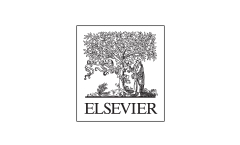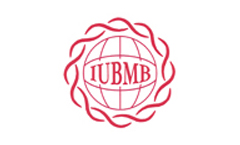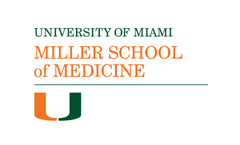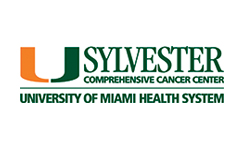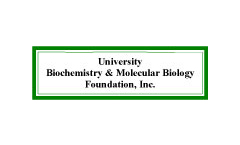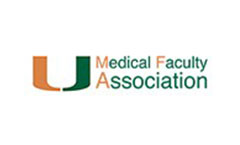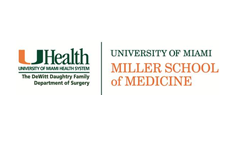Miami Winter Symposium Award Lectures
The following awards and lectures will be given at the 2018 Symposium. Details of the recipients and a brief history of the awards are details below.
Feodor Lynen Lecturer: Joshua Hare
Distinguished Service Award: Johannes Carolus Clevers,
Special Achievement Awards: Irv Weissmann and John Dick.
Lifetime Achievement Award: Sir John Gurdon
IUBMB Award Lecturer: Michael Clarke
Foundation Lecturer: Marina Cavazzana
The 2018 Feodor Lynen Lecture
This is the original MWS keynote lecture
The first was given in 1968 by Lynen, a long-time University of Miami visiting professor and 1964 Nobel Laureate for his discovery of the role of acetyl CoA in fatty acid synthesis. Hans Krebs gave the second lecture.
These two lectures were named Mason Lectures because they were sponsored by HHMI. Mason, of Miami Beach, was Howard Hughes's physician. The HHMI headquarters were for many years on the medical campus. Lynen's name was used from 1970 onwards, although for many years, HHMI continued their support. The lecture has been given by 28 then or future Nobel Laureates.
The 2018 Lynen Lecturer is Joshua Hare.
The 2018 Distinguished Service Award
The Distinguished Service Award became the second MWS award lecture in 1985. The first recipient was Donald Fredrickson, the Director of the NIH in the seventies, when recombinant DNA was created. He lived through testing times, as the public began to imagine scenarios in which six-headed green-eyed monsters would be created in laboratories and burst on the scene. The fear of meddling with nature that had been around since, and before, Jenner introduced smallpox vaccination in Britain at the beginning of the 19th century. The recombinant DNA inventors themselves proposed a moratorium on the use of the technique until safeguards were introduced. The commotion died down and the technology became commonplace. But now we have gene editing.
The 1986 awardees were Herbert Boyer of UCSF and Stanley Cohen of Stanford, who together devised the means of readily synthesizing recombinant plasmids and introducing them into cells. The technique was now so simple that Paul Berg, who had fashioned the first recombinant plasmids by a heroic feat of chemistry, said that now, any high school student can do it. Which was true .
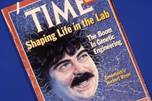 Boyer , a biochemist, went on to found Genentech, a blockbuster biotech company, and made it to the cover of Time magazine.
Boyer , a biochemist, went on to found Genentech, a blockbuster biotech company, and made it to the cover of Time magazine.
The 2018 awardee is Johannes Carolus Clevers, Professor of Molecular Genetics, Utrecht University, The Netherlands. He was the first to identify stem cells in the intestine and is one of the world's leading researchers on normal stem cells and their potential for regenerative therapy.
This award was instituted in 1987 to recognize achievements that at the time of their inception had not generated the interest that they ultimately acquired.
The first awardee was a Chinese biochemist, Wang Ying-Lai, who had carried out seemingly impossible chemical syntheses of two natural products. First, insulin and then a tRNA.
The total chemical synthesis of insulin meant first the synthesis of the individual amino acids, as their enantiomers, then separating the D- and L-forms.
The A and B chains of insulin were synthesized from the L-forms and then the six cysteine residues were linked via disulfide bonds. The crystalline product was biologically active.
This was done in the 60s at the Chinese Academy of Sciences Institute of Biochemistry in Shanghai, where, in the 70s, with the Cultural Revolution at its height, the tRNA was synthesized.
This was Nobel Prize winning work, but the Chinese authorities prevented Ying-Lai’s nomination. In 1984, Bruce Merrifield, at the Rockefeller University, was awarded the Prize in Chemistry for developing solid state peptide synthesis. One of the molecules he had synthesized was insulin.
Ying-Lai evidently received little recognition for his scientific work. In his 2001 obituary in Nature, the MWS award is the only one mentioned.
In 2018 there will be two Special Achievement Awardees. Irv Weissmann and John Dick.
Weissmann, from the Institute for Stem Cell Biology at Stanford University, is working to identify and characterize the progression of discrete changes, genetic and epigenetic, that lead to the generation of cancer stem cells from a variety of blood and solid tissue cancers.
Dick is in the Department of Molecular Genetics at the University of Toronto, Canada. He is working to understand the genetic pathways that control human hematopoietic stem cells and to determine how changes in these programs lead to the generation of leukemic stem cells.
Lifetime Achievement Award
The first Lifetime Achievement Award was given in 2004. It recognized the pivotal discovery made 60 years earlier by three scientists at the Rockefeller Institute , that DNA is the hereditary principle.
The three were Oswald Avery, Colin McLeod and Maclyn McCarty. McCarty , the only survivor, was our awardee.
This discovery is a classic in the list of discoveries that were never recognized by the award of a Nobel Prize. It is said that the discoverers did not press the importance of their feat. A major factor in the neglect of their achievement was certainly the stubbornness of their detractors, who subscribed to the dogma that the hereditary material had to be a protein, something that Avery et al. had taken great pains to refute.
The 2004 MWS was a very appropriate time at which to recognize McCarty. The 60th anniversary of the publication of the seminal paper. Another awardee was Sir Aaron Klug, also a Nobellist, a former colleague of Rosalind Franklin, of double helix fame and for 10 years the director of the famous Cambridge laboratory of molecular biology, where the double helix was unraveled.
The 50th anniversary of the Watson and Crick double helix discovery was the previous year. They had been MWS awardees then. The BBC had arranged a traveling DNA exhibit. They were persuaded them to bring it to Miami for a month. So on the Tuesday evening of the 2004 MWS week, in the Cox Science Building at Coral Gables, the exhibit was officially opened by Klug and McCarty.
McCarty died exactly one year later.
The 2018 Lifetime Awardee is Sir John Gurdon. In 2012 he shared the Nobel Prize in Physiology or Medicine for the discovery that mature cells can be converted into stem cells.
John Gurdon received another MWS award in 1992, the Distinguished Service Award.
The IUBMB Lecture was instituted by Bill Whelan, in 1999, when he was the President of the IUBMB, in recognition of the fact that it was the year of the 50th anniversary of the first International Congress of Biochemistry, held in Cambridge, UK.
Such Congresses were held every three years by so-called international unions of scientists.
Until then, biochemists wanting to meet colleagues from around the world had to rely on attending the congresses of physiology, begun in 1889, or chemistry, since the 1920s.
There was another reason to have a biochemical congress, namely World War 2.
The war had cut communications between biochemists, especially from the warring countries of Europe.
Krebs was Jewish and a prewar refugee from Germany, like Albert Einstein.
Krebs became the chair of biochemistry at the University of Sheffield, UK.
He prevailed on the British Biochemical Society to organize the 1949 Congress, so that European biochemists could reunite.
The Congress was a resounding success and immediate plans were made to hold the next in Paris, in 1952, and Brussels, in 1955.
By then the international cohesion between biochemists was so strong that an application to be recognized as a union was sent to the central body, the International Council of Scientific Unions, and this was accepted, but only after
protests by both the chemists and physiologists that biochemistry was not an independent discipline.
The IUBMB Jubilee Lecture (Jubilee was later dropped) is intended to help a regional or international meeting or symposium reach critical mass by paying the expenses of an internationally recognized speaker, to be added to the program. The awardee receives the IUBMB Medal.
Initially IUB, and IUBMB since 1991, the Union has become a powerful force on the international scene, uniting biochemists and molecular biologists from 75 countries, in staging congresses and conferences, both on science and education, publications, assisting younger scientists, like the IUBMB travel fellows at each MWS. See www.iubmb.org.
The 2018 IUBMB Lecturer is Michael Clarke, Institute for Stem Cell Biology and Regenerative Medicine, Stanford University. His laboratory is focused on two areas of research: i) the control of self-renewal of normal stem cells and their malignant counterparts; and ii) the identification and characterization of cancer stem cells.
The Miami Winter Symposia are owned by the University Biochemistry and Molecular Biology Foundation, an independent tax-exempt body of which the trustees are the tenured faculty of our Department.
Like the IUBMB Jubilee lecture, the first Foundation Lecture was inspired by a 50 year old event, the 50th Miami Winter Symposium in 2017, where the awardee was Douglas Melton.
The 2018 Foundation Lecturer is Marina Cavazzana
She has a gene and cell therapy laboratory at the Imagine Institute of Genetic Diseases, a pediatric department of the Necker Hospital, Paris. She has launched various protocols and clinical trials for the treatment of sickle cell anemia.

